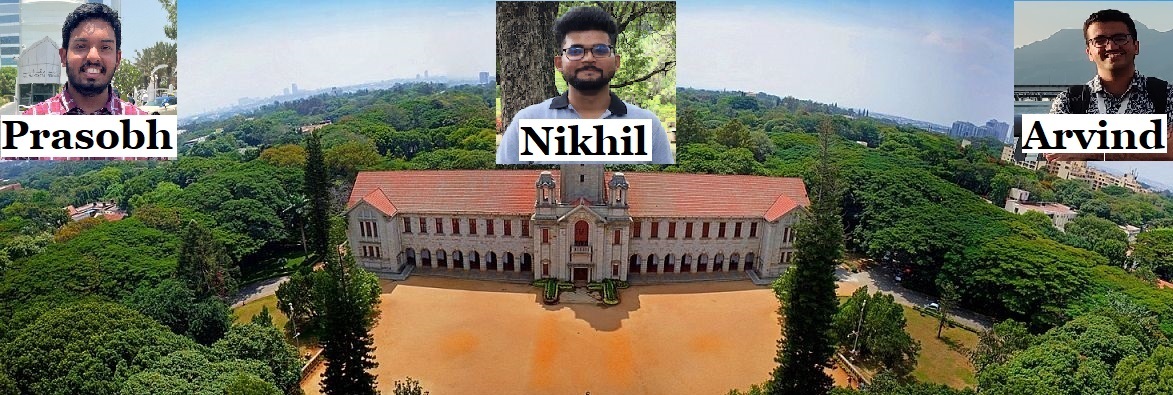The QIF awards were given, this year, to 12 teams (the ‘Winners’) who submitted new proposals in 2023 as well as 4 teams from the batch of 2022 winners. The latter have been selected as ‘super-winners’ and will be offered a continuation fellowship this year.
Two teams from the Department of Electrical Communication Engineering, IISc have won the QIF awards.
Team 1:
Student: R S Prasobh Sankar
Faculty adviser: Sundeep Prabhakar Chepuri
Category: Winners
Title of the winning proposal: Learning to Beamform for Integrated Sensing and Communication Systems
Domain: Advances in Communication Techniques and Theory
Brief summary of the work: Integrated sensing and communication (ISAC) systems are modern systems that carry out both sensing and communication while sharing hardware and spectral resources. Existing methods use optimization-based techniques to design the precoders and require knowledge of wireless channels. In this project, the aim is to develop low-complexity beamforming solutions for ISAC systems. A deep learning-based framework using neural networks has been proposed to ‘learn’ the precoders in ISAC systems while avoiding the need for wireless channel knowledge. The proposed learning-based framework is applied to various beamforming problems in next-generation ISAC systems. The proposed method offers significantly improved performance compared to traditional methods while incurring much lesser computational complexity.
Team 2:
Students: V Arvind Rameshwar, Nikhil Verma
Faculty adviser: Navin Kashyap
Category: Super-winners
Title of the winning proposal: Reed–Muller and Polar Codes for Channels with Memory
Domain: Advances in Communication Techniques and Theory
Brief summary of the work: The work is on designing coding schemes of high rate over channels with memory, using Reed–Muller and polar codes. In particular, explicit constructions of codes have been done, using Reed–Muller codes, for use over run length limited input-constrained memoryless channels, and over the Gilbert–Elliott channel. The problem of counting constrained codewords in general linear codes (including Reed–Muller and polar codes) has been addressed via a Fourier-analytic lens, and good upper bounds have been obtained on the sizes of error-correcting constrained codes, via a version of Delsarte’s linear program.
